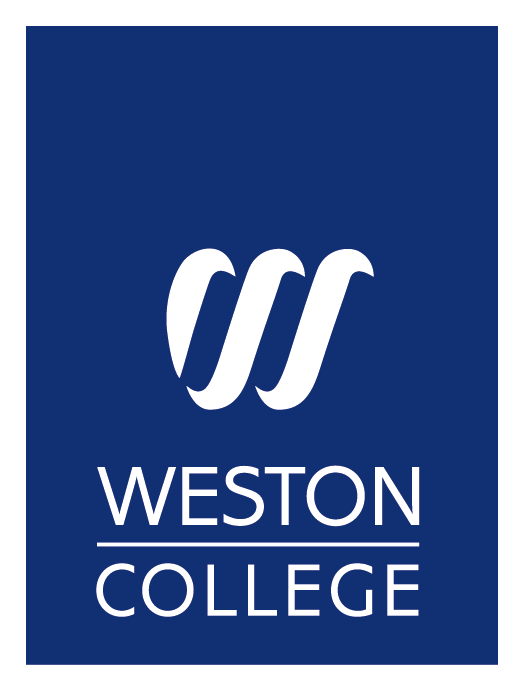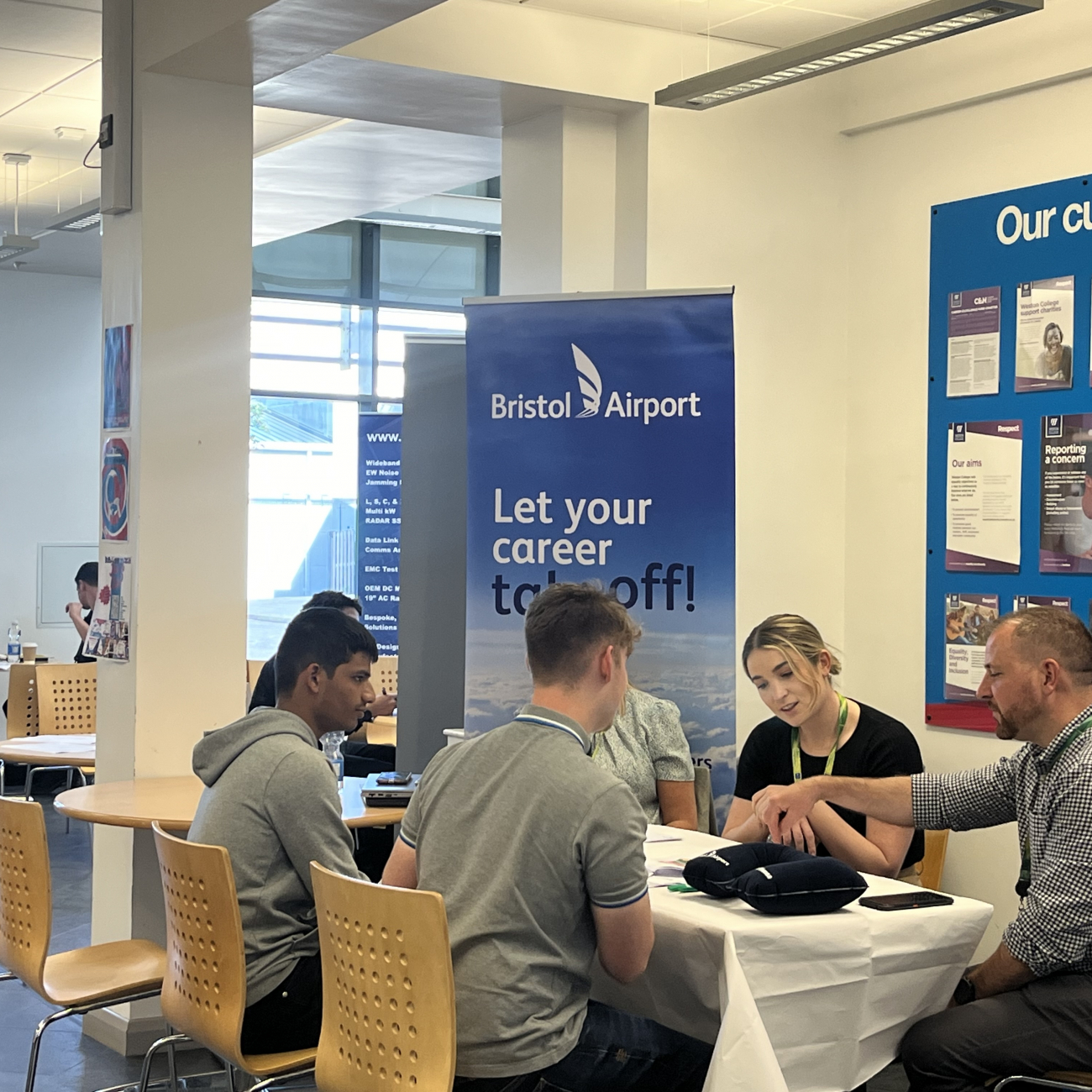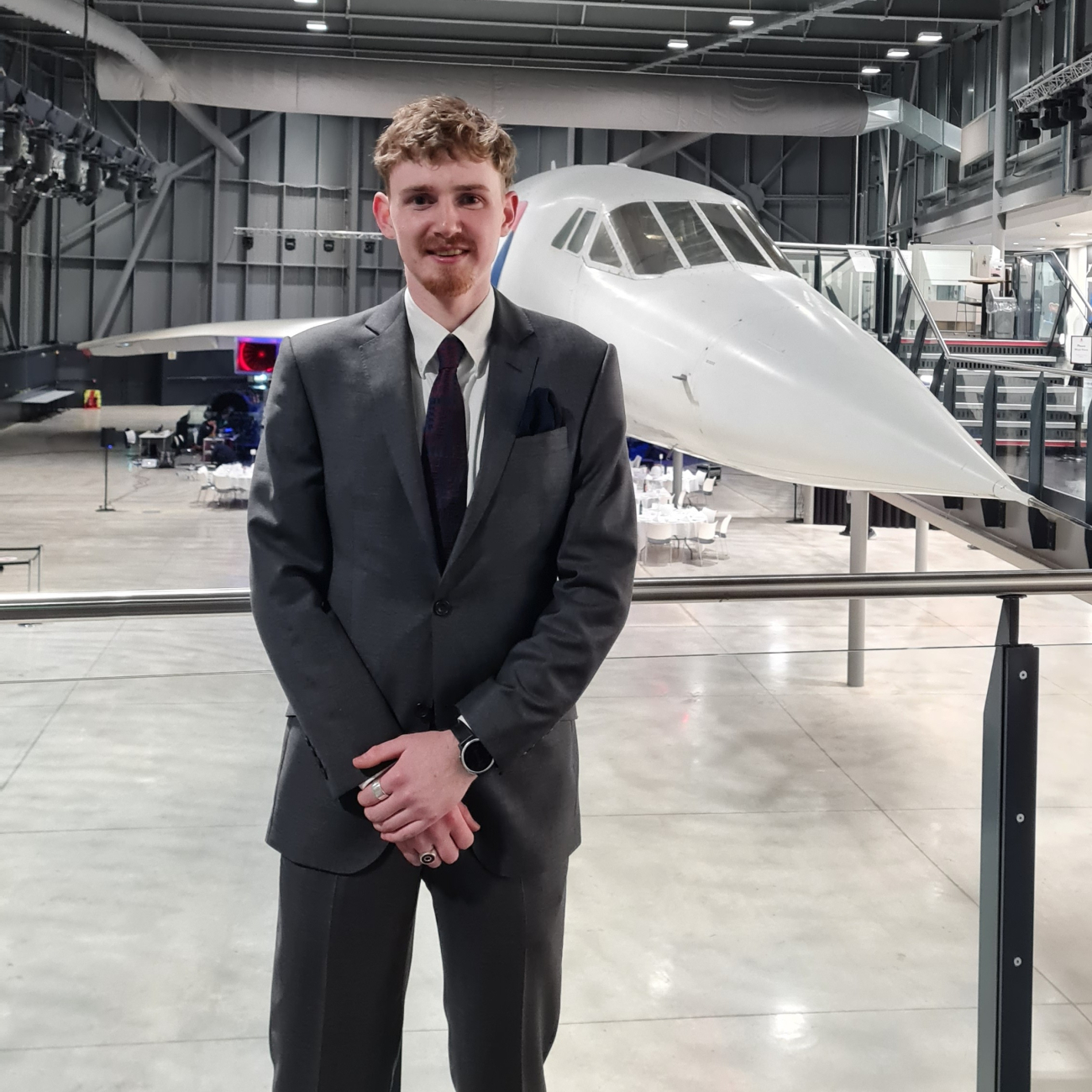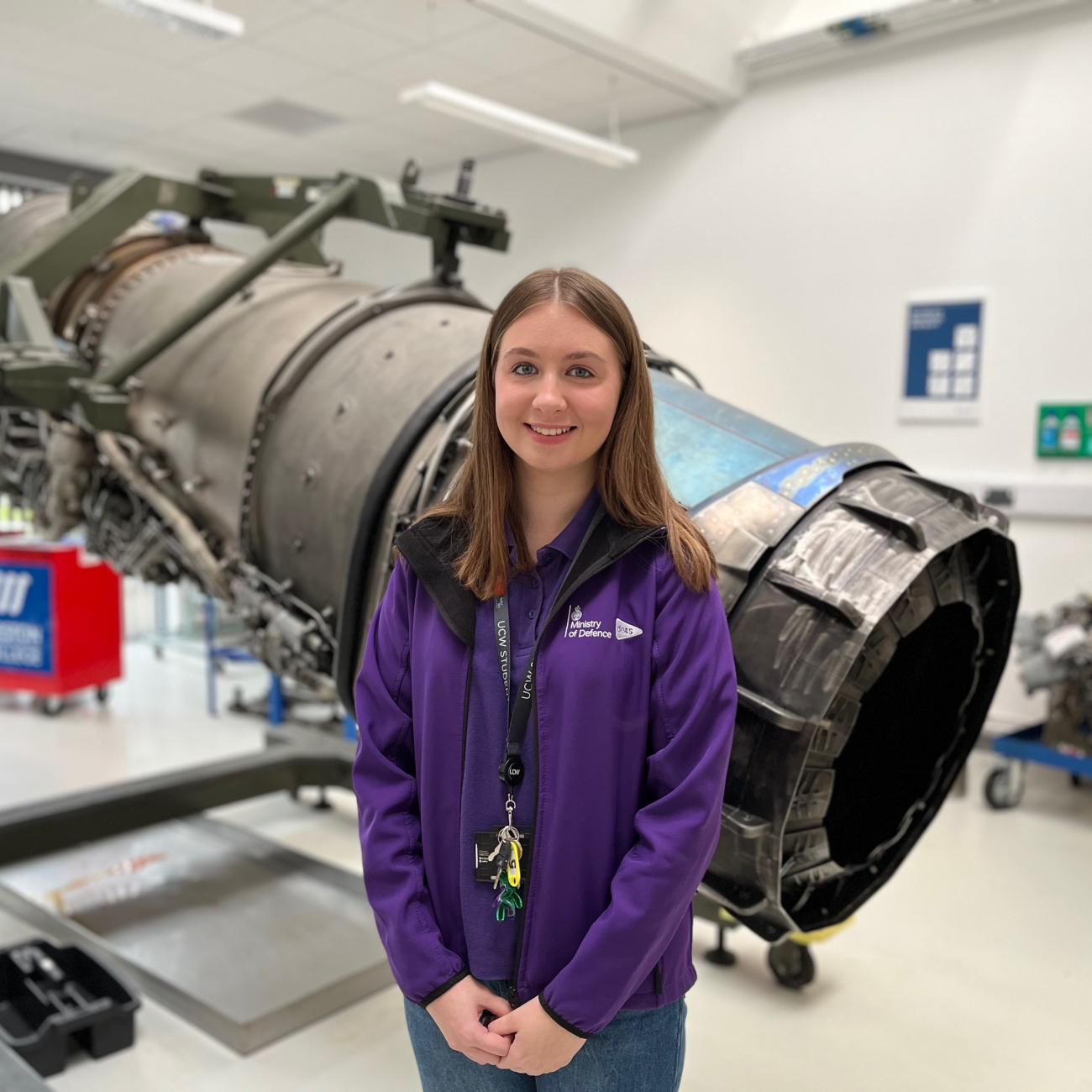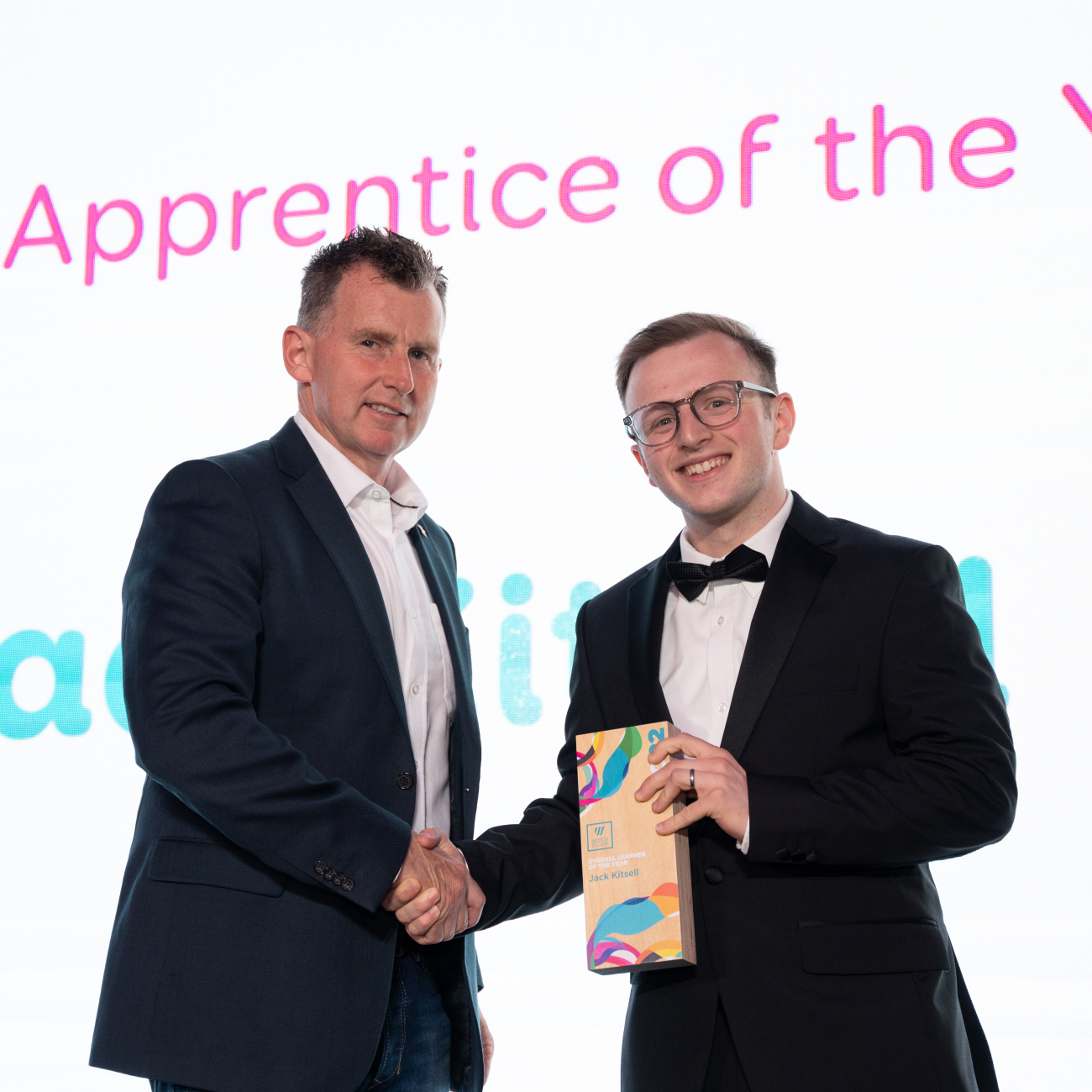
Is Neurodiversity just labels? My ADHD diagnosis journey

Bede is a 3rd year Engineering Degree Apprentice working at Airbus. Bede has shared his experience of being Neurodivergent: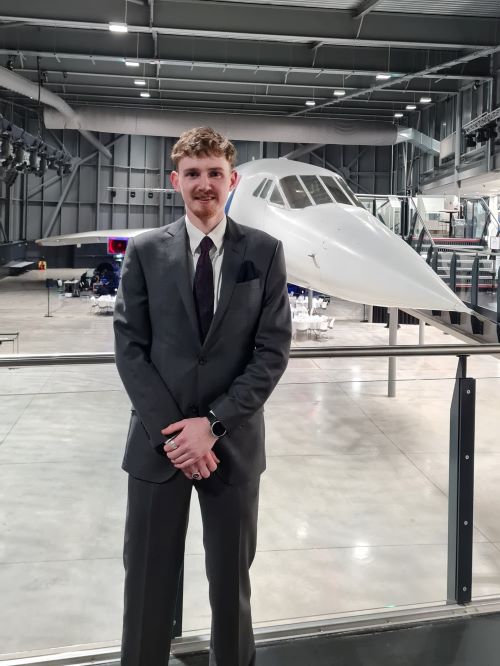
"Imagine walking into a shop and every item is blank. Packets, jars and boxes, unbranded and unidentifiable. It would be so hard to understand what you wanted to buy. Labels are often useful to identify and choose what we want, to be selective. But this can be flipped – they can also be used to single people out, to shame or discriminate – this is why I did not want labels at the start of my diagnosis journey.
At the age of 11 I was diagnosed with dyslexia, privately because the school I was at sadly deemed me not ‘dumb’ enough for a test. My dad is severely dyslexic and sometimes reading his text messages is a real mental work out – the phonetic spellings often so far from reality they make you laugh. So as I entered secondary school with a diagnosis and it was a positive neurodiversity (ND) support experience.
I was provided with regular support and lessons on the skills I needed to succeed in a neurotypical world. I think the thing it compounded most in my head was the feeling I was being ‘fixed’. Although no one explicitly told me this was the case, the world we live in orientates around the medical model of disability – the idea you have a ‘problem’ to be fixed.
By the end of the struggle and gruel that was school, I had some of the toughest years of my life - I was struggling mentally and felt lost about what was ahead. I had a place in university that I ended up dropping out of after three weeks. People laughed at me, because let’s be honest, who gives up the chance to study at Cambridge? I was unhappy and needed help to live my life better but I was too scared of labels which put me off of wanting to find the problem.
I wanted to be ‘normal’ and I did not want to feel like a burden or a list of forever stretching ‘problems’.
It took me a couple of years to work out what to do, a pandemic nearly sank all of my plans but by the end of 2020 I was in Bristol and starting the next stage of my life. Education is not built for me, or more generally it is not built for ND people. But I knew I needed a degree to progress to where I wanted to be in engineering, hence the Airbus apprenticeship scheme was ideal. It provided a balance between the work I loved and the difficulties of education.
Fast forward a couple more years and I received an email about the Neurodiversity Community in Airbus. To set the scene, it was August 2022. I was nearly two years into my engineering apprenticeship and struggling. I had split up with my long-term partner, started therapy once a week again and grown apart from old friends. I was in a place where I didn’t understand how to proceed in life without the risk of destroying everything I had built.
As with many things in my life, I threw myself headfirst into the community. It felt like something positive, mentally and emotionally. Each meeting felt as if I was helping not just myself but those around me. The sharing of employee’s struggles and stories around their ND drove me forward to be proud of my ND instead of hiding it or trying to fix it.
I think the biggest change for me was gaining an understanding of the different ways to view disability. Society taught me to see disability by the medical model, but instead the social model lets us view people as being disabled by barriers in society, not by the ‘problems’ that society sees in them.
I wanted to be ‘normal’ and I did not want to feel like a burden or a list of forever stretching ‘problems’.
It took me a couple of years to work out what to do, a pandemic nearly sank all of my plans but by the end of 2020 I was in Bristol and starting the next stage of my life. Education is not built for me, or more generally it is not built for ND people. But I knew I needed a degree to progress to where I wanted to be in engineering, hence the Airbus apprenticeship scheme was ideal. It provided a balance between the work I loved and the difficulties of education.
Fast forward a couple more years and I received an email about the Neurodiversity Community in Airbus. To set the scene, it was August 2022. I was nearly two years into my engineering apprenticeship and struggling. I had split up with my long-term partner, started therapy once a week again and grown apart from old friends. I was in a place where I didn’t understand how to proceed in life without the risk of destroying everything I had built.
As with many things in my life, I threw myself headfirst into the community. It felt like something positive, mentally and emotionally. Each meeting felt as if I was helping not just myself but those around me. The sharing of employee’s struggles and stories around their ND drove me forward to be proud of my ND instead of hiding it or trying to fix it.
I think the biggest change for me was gaining an understanding of the different ways to view disability. Society taught me to see disability by the medical model, but instead the social model lets us view people as being disabled by barriers in society, not by the ‘problems’ that society sees in them.
I faced a wake up call. I received a behavioural warning from my Early Careers managers near the end of 2022 from a three day training course we were sent on. I remember the three days well – it felt like school again – impossible to listen and to focus. It was somewhere I wanted to escape from as quickly as possible. As a result I was regrettably disrespectful. All the evidence I could see and feel in my life was pointing me towards ADHD. There were several champions in the community who would share common ADHD struggles – I felt them . There were members in the chat that would share common ADHD behaviours – I felt them. There were champions and members who shared their diagnosis stories. I listened, learned and felt understood.
I want to say that 2023 is going to be a good year. However, to be honest, it has been tough. The days I have felt overwhelmed and burnt out are more common than the days without. I have often felt excluded and actively struggle with this time of year. The weather, the cold, the dark and the rain makes me lack energy and happiness.
All this mental pressure has meant getting an answer from my ADHD diagnosis could not come quickly enough. I felt like I could self-diagnose, but the irrational doubt in my brain wouldn’t let me. Without the ability to label myself as ADHD, it means I often fail to be kind to myself when I experience common negative ADHD symptoms. I was able to ‘own’ and forgive my difficulties from dyslexia – “ah you have lots to read … give yourself breaks … take it easy”. But I struggled to own my feelings about being hypersensitive to bright lights or loud noises. Or feeling like I could never follow the time. Or understanding why I felt burnt out after any of my successful productive days. Or feeling demoralised when I hadn’t been able to focus at all.
I can now confidently say I have ADHD. My diagnosis is finished, I have combined impulsive, inattentive and hyperactive ADHD and my doubt in my NDs is gone (well I have been recommended an Autism diagnosis - which was expected…!).
How do I move forward with this? I’m not sure - this is just the start of my journey. However now I can explore the world of ADHD research, tips, tricks and even medication without the reluctant thought of ‘does this apply to me’.
I still struggle with labels but I have recognised just like in the shop we need labels sometimes to understand how to proceed. The controversial nature of labels is something felt by many and is explored by the amazing Genius Within here: https://geniuswithin.org/labelling-neurodiversity/
This year I want to continue to focus on building the community that has supported me so much. Sharing thoughts, troubles or successes helps celebrate positives and is a powerful encouragement through struggles. The warmth from people listening and sharing in a safe space is remarkable and transformative. There are many people inside Airbus and external who I have to thank for my progress. I think it is always important to remember that you are never alone, we have an amazing community here in Airbus, and many supportive employees."
One of Bede's lecturers here at Weston College, told us:
"I was Bede’s lecturer in Dynamics Modelling and Simulation. This involved Programming and Mathematical Simulation of Engineering Problems.
He was one of the best students and a real talent in programming.
Although undiagnosed at that time, I believe his ADHD played a significant role in his programming skills, problem solving and thinking out of the box abilities.
He never asked for support due to learning difficulties, but on several occasions, he was messaging me to share a ‘’crazy idea’’, as he used to say, usually in regards with some really challenging problem I had set to just a few of his cohort. A very bright mind indeed!"
If you are passionate about education and are looking for an opportunity to join the staff team at a leading college, then look at the latest job vacancies available at Weston College here. You can find all the latest job opportunities that Weston College has to offer, with a commitment to providing quality education to students and a focus on continuous professional development for staff, Weston College is an excellent place to work and grow in your career.
